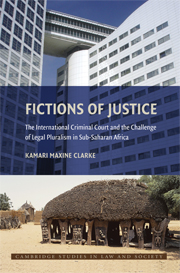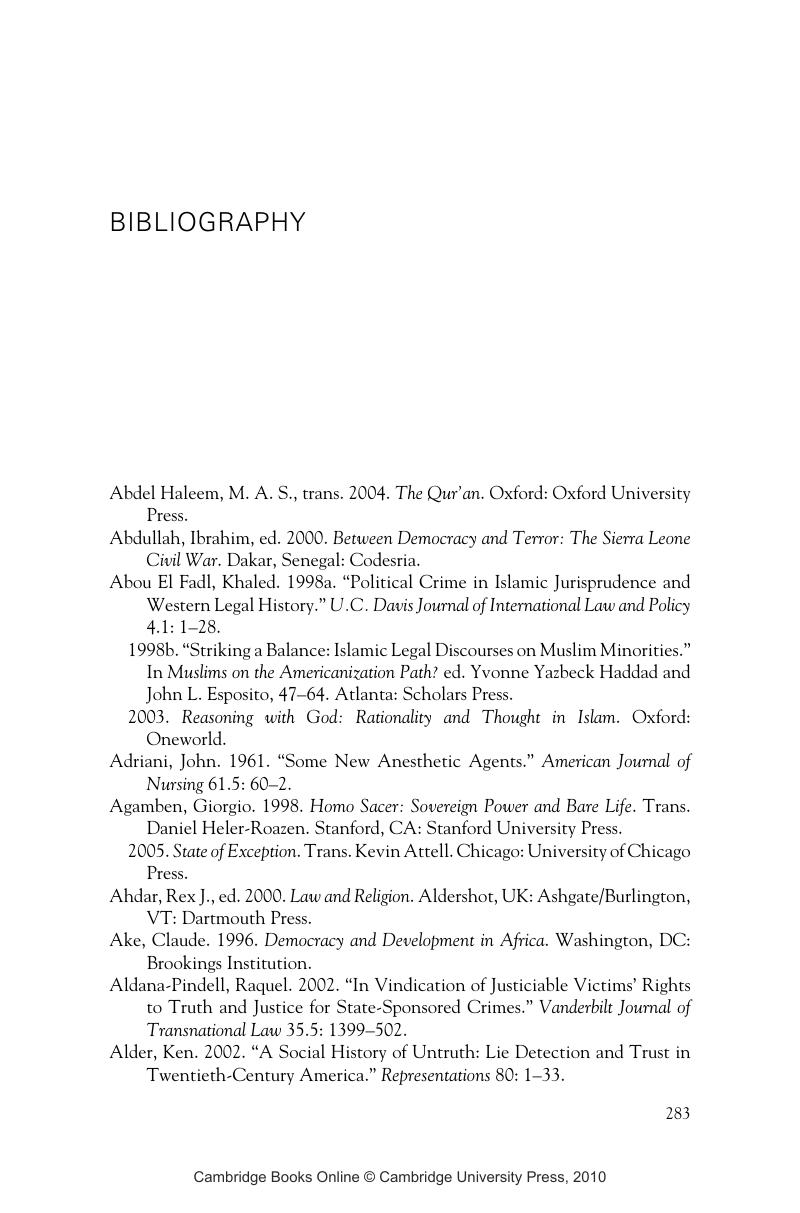 Fictions of Justice
Fictions of Justice Book contents
- Frontmatter
- Contents
- Preface
- Acknowledgments
- Introduction: The Rule of Law and Its Imbrications – Justice in the Making
- PART ONE THE PRODUCTION OF LIBERALIST TRUTH REGIMES
- PART TWO THE RELIGIOUS POLITICS OF INCOMMENSURABILITY
- Epilogue: Toward a Critical Transnational Legal Pluralism
- Notes
- Bibliography
- Index
- CAMBRIDGE STUDIES IN LAW AND SOCIETY
- References
Bibliography
Published online by Cambridge University Press: 23 January 2010
- Frontmatter
- Contents
- Preface
- Acknowledgments
- Introduction: The Rule of Law and Its Imbrications – Justice in the Making
- PART ONE THE PRODUCTION OF LIBERALIST TRUTH REGIMES
- PART TWO THE RELIGIOUS POLITICS OF INCOMMENSURABILITY
- Epilogue: Toward a Critical Transnational Legal Pluralism
- Notes
- Bibliography
- Index
- CAMBRIDGE STUDIES IN LAW AND SOCIETY
- References
Summary

- Type
- Chapter
- Information
- Fictions of JusticeThe International Criminal Court and the Challenge of Legal Pluralism in Sub-Saharan Africa, pp. 283 - 306Publisher: Cambridge University PressPrint publication year: 2009
